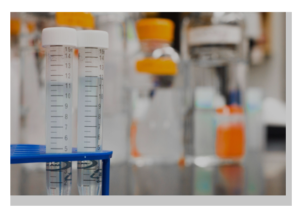“It’s in your blood”: Researchers develop a blood test to diagnose and treat anxiety
By Lauren DeSouza- Master of Public Health, Simon Fraser Public Research University – Canada
https://www.milwaukeedetoxcenter.com/our-team/
Staff Research and Content Writer
© Copyright – SUD RECOVERY CENTERS – A Division of Genesis Behavioral Services, Inc., Milwaukee, Wisconsin – March 2023 – All rights reserved.
Researchers at the University of Indiana School of Medicine have developed a blood test that determines someone’s risk for developing anxiety, the severity of their current anxiety, and which medical treatments would best treat their anxiety.
One in three Americans will have anxiety at some point in their lives. Anxiety can significantly affect someone’s quality of life, potentially leading to substance use, addiction, and self-harm. While treatments exist for anxiety, diagnosis and treatment are not straightforward and existing treatments are not always successful.

Photo by Engin Akyurt on Pexels
Currently, anxiety is diagnosed through self-report, where patients tell their doctor about their symptoms and feelings. From there, doctors will use trial and error to determine which medications work best and at what dose. Unfortunately, this process can be lengthy; it can take anywhere from nine to 23 years from when someone starts experiencing anxiety symptoms for them to be diagnosed with an anxiety disorder.
This new blood test could revolutionize how we diagnose and treat anxiety and may contribute to efforts to prevent anxiety altogether.
How did this study work?
This study took place with inpatients at the Indianapolis VA Medical Center with diagnosed anxiety disorders, some with mild and some with severe anxiety. Patients completed a blood test every three to six months or whenever they were hospitalized due to their psychiatric condition(s). The researchers were interested in identifying biomarkers— biological molecules found in one’s blood that can indicate disease— associated with anxiety.
There were three phases of this research project, each conducted with a different group of inpatients: discovery, validation, and testing. During the discovery phase, the researchers identified potential biomarkers expressed among a range of patients with varying anxiety levels. They were interested in identifying any genes that changed as someone’s self-reported anxiety levels changed. The researchers then validated the identified biomarkers in a new group of inpatients. Through this process, they identified 95 potential biomarkers for anxiety.

Photo by Martin Lopez on Pexels
In the testing phase, the researchers tested the 95 biomarkers with another group of inpatients to determine how useful they would be in a clinical setting. Biomarkers were tested to see if they would help clinicians diagnose anxiety and if they could be used to predict future anxiety-related hospitalizations. Testing was done across the whole cohort and then by gender and psychiatric diagnosis.
The researchers were also interested in applying these biomarkers in the treatment phase of anxiety. Through the use of pharmacogenomics, a field of research that studies how a person’s genes affect how they respond to a medication, patients can be matched to the treatment that will work most effectively for them. The researchers
identified which biomarkers are targeted by existing drugs and can thus be used to match patients to treatment and to measure response to treatment.
What were the main findings?
This study identified and validated 95 biomarkers that can diagnose and predict anxiety disorders. Of these 95, 19 emerged as the most effective in tracking and predicting anxiety. The top identified biomarker was GAD1 which synthesizes GABA, a neurotransmitter often abnormal in patients with anxiety and mood disorders. GAD1 successfully predicted clinically severe anxiety, particularly in women, and predicted future anxiety-related hospitalizations in all patient demographics.
Notably, the researchers’ approach of testing by gender showed better accuracy than testing across the general study population. Women in the US consistently have higher rates of anxiety disorders than men, but little is known about how gender affects the onset or treatment of anxiety. The authors note that the tests may have performed better in women due to biological differences or because women self-report their symptoms more accurately than men.
The researchers used the identified biomarkers to match existing psychiatric medications. They identified valproate as having the most robust evidence for treating anxiety disorders, followed by omega-3 fatty acids and lithium. Biomarkers associated with benzodiazepines, a common but addictive medication currently used to treat anxiety, had weaker evidence. Many biomarkers identified are targeted by medications currently used to treat anxiety, underscoring the importance of accurately matching patients to drugs. This research also identified the biomarker EEG gamma band frequency, which is increased by meditation and other mindfulness practices, offering a non-pharmacological treatment option for anxiety.
Why is this research important?
The blood test developed through this research has significant and ground-breaking implications for clinical assessment and treatment decisions for patients with anxiety. The test has created an opportunity to understand the biology of anxiety disorders and provide personalized treatment to patients based on their biology. It can help predict anxiety and hospitalization, treat it with the correct medication, and help prevent anxiety from worsening later in life. Given the high burden of disease and disability that anxiety causes in the US, this research has the potential to vastly improve the lives of millions of Americans living with anxiety disorders.
Now that this test has been validated, the company MindX is developing it for broader use. It will soon be available to physicians to provide more accurate treatment for their patients.
What are the key takeways?
- Researchers have developed a blood test that can accurately diagnose anxiety disorders and match patients to the most effective medication to treat it.
- The blood test can predict clinically severe anxiety and future anxiety-related hospitalizations. It may also have applications to prevent anxiety disorders from developing or worsening.
- The biomarkers identified in this study are targeted by existing medications that contain valproate, omega-3 fatty acids, and lithium.
- MindX is developing this blood test for wider use by clinicians.
References
Indiana University School of Medicine. “Researchers develop blood test for anxiety.” ScienceDaily. ScienceDaily, 7 March 2023. <www.sciencedaily.com/releases/2023/03/230307143746.htm>.
Indiana University School of Medicine. “IU School of Medicine researchers develop blood test for anxiety.” IU University Newsroom. 7 March 2023. < https://medicine.iu.edu/news/2023/03/blood-test-for-anxiety >.
